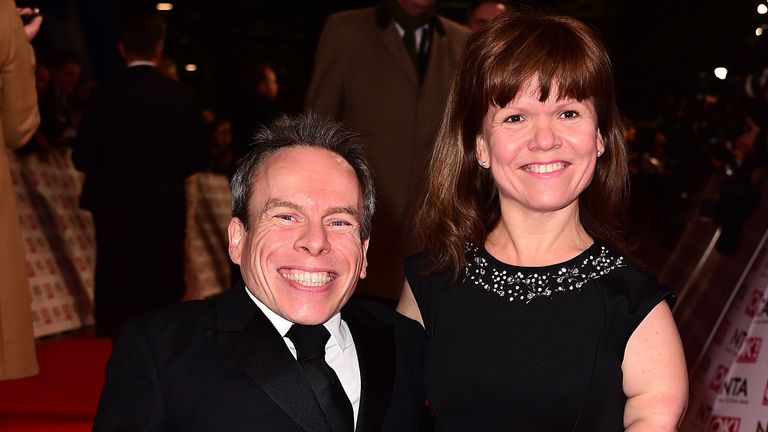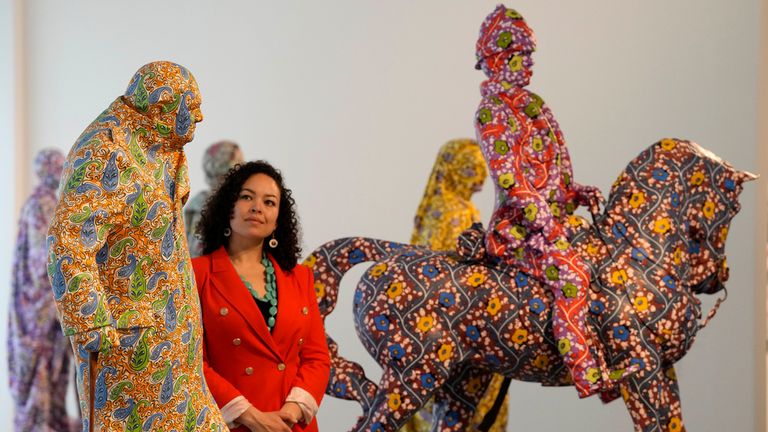
Warning: Contains spoilers for Moon Knight season 1.
The MCU broke new ground with the portrayal on Moon Knight of a character with dissociative identity disorder (DID), and while the representation was good, there were some bad moments that let the franchise down. When Marvel first announced that they were going to adapt the Moon Knight comics for a Disney+ TV show, the primary concerns were how they would handle the more graphically violent subject matter and whether they would be able to sensitively portray a character with DID. The original Moon Knight comics were not always consistent in describing how Marc Spector’s alters worked, and this is compounded by the fact that terminology and clinical understanding has changed since the Moon Knight comics first debuted in 1975.
When the Marvel Cinematic Universe first came to the big screen, the original Avengers team was far from diverse in any forms of its representation. In the more than a decade that has passed since then, the MCU has made great strides in improving its representation and diversity. 2018’s Black Panther was a huge milestone for the franchise, while more recent properties have started (slowly) to show the truth of Kevin Feige’s promise to include more LGBTQ+ representation. With the character of Makkari (Lauren Ridloff) in Eternals, Echo (Alaqua Cox) in Hawkeye, and a progression in the story of Clint Barton (Jeremy Renner) to bring him more in line with his comic book character, the MCU has also introduced representation for the Deaf community.
Moon Knight attempts to continue this shift in the MCU’s representation of marginalized communities. Oscar Isaac’s character represents the first Jewish superhero (although casting and plotlines have led to controversy and discussion about this issue). Additionally, Moon Knight shows the first hero in the MCU to explicitly live with DID, but as with the portrayal of Marc Spector as Jewish, the depiction of DID and matters of mental health are not unilaterally positive. Here’s how Moon Knight’s mental health representation succeeds, but also how it fails.
Moon Knight Brought New Representation To The MCU

When first introduced to Oscar Isaac’s character in Moon Knight episode 1, “The Goldfish Problem,” only the point of view of the Steven Grant alter is portrayed. As he goes about his life working in a museum gift shop, Steven deals with periods of amnesia and lost time that culminate in him finding himself mid-fight in the Alps. While comic book readers already knew what was happening with the character, this was a slow and intriguing introduction to Steven and his life with DID that accurately represented the periods of lost memory that many people who live with DID experience.
At the end of Moon Knight episode 1, Marc Spector is more directly introduced as Steven communicates with him through a mirror, and this trick is continued throughout the series. Communication between alter identities is relatively common, and while the mirror device is not usually what people report, it makes sense for the visual medium of Moon Knight. Several other parts of the portrayal of DID are true to people’s reported lived experiences as well with Marc Spector serving as the host identity, the way that Marc takes on a protector identity for Steven Grant, and the fact that there is an additional alter that they are not aware of in the form of Jake Lockley.
Moon Knight walks a delicate line with the representation of the origin of Marc Spector’s DID. There is not a firm consensus in the psychology field as to the causes behind dissociative identity disorder and while childhood trauma, as is portrayed for Marc with his brother’s death and his mother’s response to it, is often associated with it, this is not always the case. This goes a step further in the way that Moon Knight appears to imply that Marc Spector consciously created Steven Grant, with Steven seemingly confirming this reading while reliving memories in the Duat. This sort of conscious decision-making process seems rare and this portrayal could lead to some people to think that DID is a self-manifested delusion rather than the condition that it truly is.
The accuracy on so many points for DID in Moon Knight is perhaps not surprising. Marvel acknowledged that this would be a delicate subject to handle and to help get the representation right, they brought in board-certified psychiatrist Dr. Paul Puri to help the show approach DID in a respectful way. This is particularly important as DID, as with so many mental health conditions, are regularly portrayed poorly in media (if not outright vilified). DID is a very real spectrum condition, with some prevalence estimates as high as 1 in 100 people (although diagnoses are very difficult) and it is important for these systems to be able to see themselves represented positively in TV and film.
Moon Knight’s Portrayal Of Dissociative Identity Disorder Falls Short

While Moon Knight makes some great strides for the MCU in terms of mental health representation, it does sadly fall short in some areas. This might in part be blamed upon the comics that Moon Knight was drawing on. Moon Knight’s DID depictions in the comics, dating back to 1975, were not always positive and naturally did not use current up-to-date terminology, given that DID was known by a different name prior to 1994. However, the Moon Knight TV series made adjustments to character and plot elements in adapting for the MCU, so this should not be held as an excuse.
The major problem with Moon Knight’s portrayal of dissociative identity disorder is that the show avoids addressing the matter directly. This spawns, in part, from Marc Spector’s refusal to face certain aspects of his life, but results in Moon Knight never having a good point to discuss appropriate terminology and discussion practices for DID. Throughout the series, no character ever refers to any of the commonly used terminology such as alters, primary, host, or even dissociative identity disorder as a diagnosis. When Marc and Steven are in the Duat and faced with an Arthur Harrow (Ethan Hawke) in the guise of a psychiatrist, this could have been a chance to introduce such terminology, although if Marc and Steven did not know the terms then it would have been a plot hole for Harrow to use them inside what amounts to a mental construct.
This unfortunately limits all discussion of Marc and Steven’s mental health in Moon Knight to derogatory comments from other characters or themselves. Arthur Harrow suggests to the avatars of the Egyptian gods that there might be many “personalities” in Marc, and while personalities is not technically incorrect, it harkens back to the term “multiple personality disorder” which is now considered outdated and offensive, and no other term is offered instead. Lyla El-Faouly (May Calamawy) questions whether Steven is another of Marc’s “fake identities” in a dismissive way, and Marc even yells that he is “crazy” at one point. All of these terms being left unchecked by Moon Knight mean that people without a grounding knowledge in dissociative identity disorder might not understand that this language is largely offensive and inappropriate for real-world applications.
As Moon Knight never provides any sort of medical or psychological description of what Marc and Steven are experiencing, it would be easy for viewers to think that the dissociative identity disorder is actually a supernatural aspect of the character’s powers. Indeed, Harrow at one point suggests that it was caused by Khonshu (F. Murray Abraham) breaking Marc’s mind (although this is later debunked). This plays into mystical ideas around mental health portrayal and may make it even harder for people living with DID to be taken seriously. In a similarly problematic move, Marc and Steven are shown to lose control to Jake Lockley at times during Moon Knight, an alter who is hyper-violent. While the whole idea of Moon Knight is obviously based around degrees of violence, the apparently concerning and unrestrained violence once again echoes myths around mental illness and a risk of violence to others. In reality, people living with DID are statistically much more likely to be victims of violence than perpetrators of violence.
How Moon Knight’s DID Compares To Other Portrayals

While it might be a first for the Marvel Cinematic Universe, Moon Knight is obviously not the first piece of live-action media to portray a character living with dissociative identity disorder. At the most negative end of previous representations, DID has been used as part of horror movies to offer a threat and the risk of violence – most recently notable in M. Knight Shyamalan’s Split. It also appears as a plot device for sensational purposes in movies like Fight Club. United States of Tara was one of the first TV shows to focus whole-heartedly on a character of dissociative identity, and while it had its flaws, it was more positive than many portrayals.
The general bar for Moon Knight might have seemed pretty low for being a good representation for dissociative identity disorder, but it’s actually not even the first comic book or Marvel adaptation to represent DID in live-action. In Marvel’s own Legion TV series David Haller (Dan Stevens) struggled with mental health issues very similar to DID (although he was far from a positive figure much of the time).
The show that challenges Moon Knight the most and makes its shortcomings truly disappointing is DC’s Doom Patrol. The TV show adapted Jane (Diane Guerrero) and dropped the pejorative part of the character’s comic book name. In Doom Patrol, Jane’s DID is explored in depth using the appropriate terminology, and while her powers are connected to different alters it is made clear that the occurrence of the DID and her powers are wholly separate. The use of a visual mental space called “The Underground” helps to explore this in more depth. While after three seasons Doom Patrol has had more time to explore such a nuanced issue, the show deals with an ensemble cast rather than Moon Knight’s more contained narrative.
Moon Knight certainly makes new strides for Marvel’s representation of marginalized groups in the MCU. The franchise has come a long way from its roots. However, when it comes to Moon Knight’s portrayal of dissociative identity disorder, like its depictions of LGBTQ+ identities, the MCU seems to be going in the right direction but maybe still lags just a couple of steps behind where it should be.





















